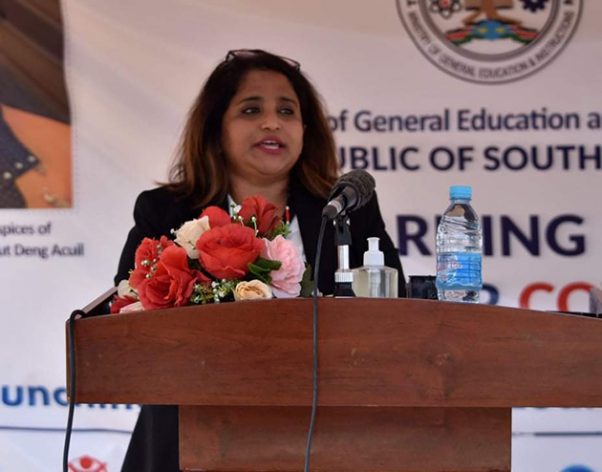by MARIYA SALIM

Two Indian women, one Muslim and the other Dalit (former untouchables), separated by culture and geography, have found common ground in leading change in conflict-torn South Sudan.
Rama Hansraj, a Dalit, grew up in a humble railway colony in Secunderabad. Huma Khan, a Muslim, born and raised in the controversial north Indian city of Faizabad, now Ayodhya, home to the demolished Babri Masjid. Both agree their personal experiences of experiencing and seeing discrimination in India and the world led to their decisions to work in the international humanitarian field in conflict zones.
The women are activists and feminists who, through their experiences of struggle and years of work with India’s most marginalised, decided to work in geographies and contexts which ordinarily many would avoid.
“What else do you expect someone, who has grown up five kilometres (three miles) away from the disputed Babri Masjid site in an atmosphere of constant conflict and communal strife, to want to pursue?” says Khan in an exclusive interview with IPS. She was answering a question on why she chose to work in countries like Iraq and Afghanistan instead of choosing a more comfortable position.
In her last role in South Sudan, Khan was the senior women’s protection advisor, leading the section on conflict-related sexual violence at the United Nations mission in South Sudan (UNMISS). She is now a senior human rights adviser to the UN in Bangladesh.
Hansraj, country director of Save the Children in South Sudan, shared with IPS how her work on the ground in India and her interactions with the development sector motivated her to take up positions outside the country and institutions with decision-making powers.
“For us Dalits, access to basic facilities like education and land is a challenge. We face discrimination even in disasters,” she says while sharing her experience of working post-Tsunami in India.
Here she saw how Dalits, affected by the disaster, were not even allowed to stand in the same queue as others to receive basic aid.
“We started working on developing donor principles in disasters, highlighting the fact that they need to look at the vulnerabilities within the response and how the beneficiary selection needs to be more inclusive. That is when I saw that not working in these bigger organisations was not going to help us,” recalls Hansraj.
Khan spent many years in Gujarat as an independent activist living in resettlement colonies after the communal violence of 2002. There she worked to help rebuild communities and assist in the case of a gang rape survivor. Her lived experiences made her “unapologetically Muslim”.
She recalled how she refused to share the stage at an event organised by an international NGO where women were made to “unveil” as a symbol of freeing them.
Inter Press Service News for more
